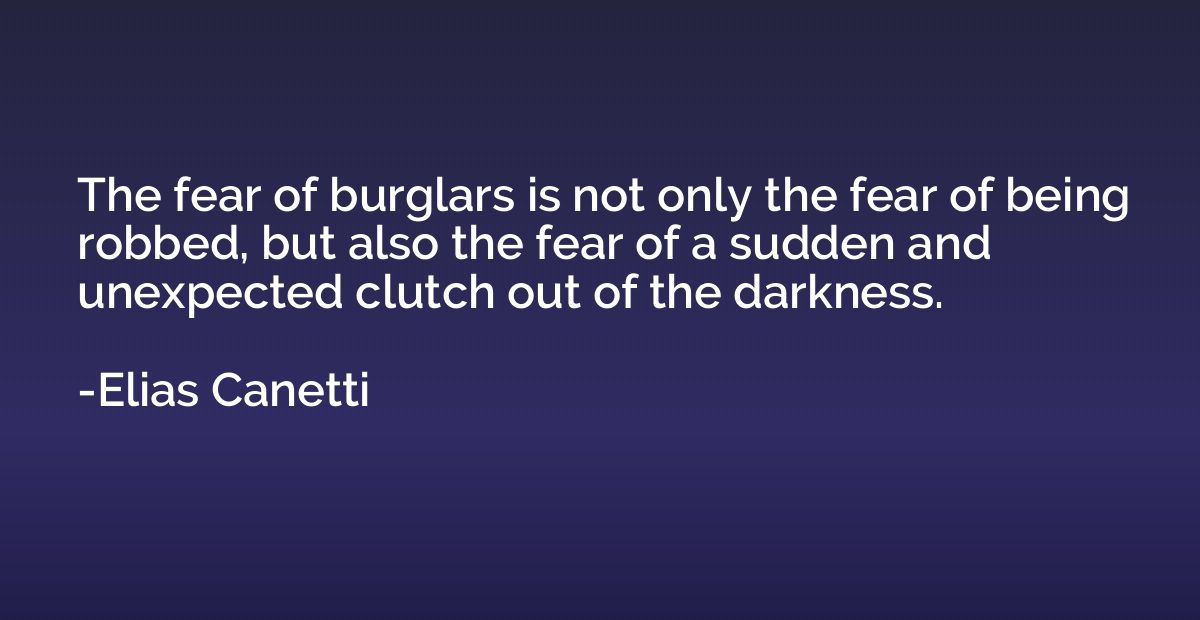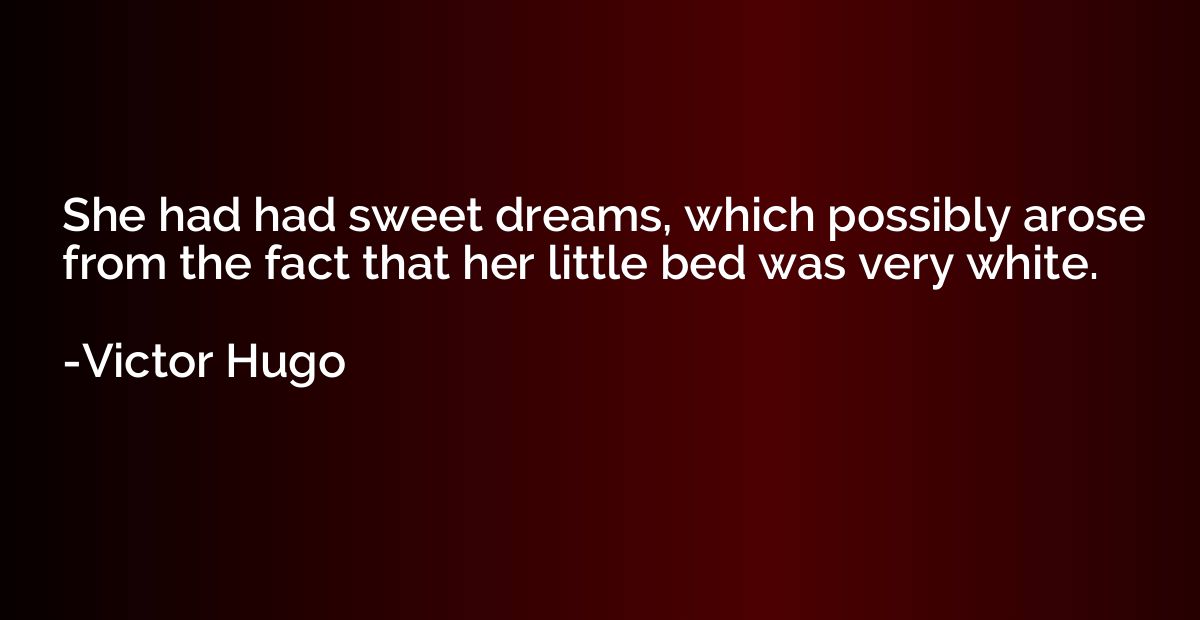Quote by Elias Canetti
The fear of burglars is not only the fear of being robbed, but also the fear of a sudden and unexpected clutch out of the darkness.

Summary
This quote suggests that the fear of burglars goes beyond the fear of losing material possessions and extends to the fear of a sudden and unexpected confrontation. It highlights the anxiety and vulnerability that comes with the possibility of a stranger invading one's private space, emphasizing the element of surprise and the feeling of being caught off guard. The quote captures the fear and unease that burglaries can instill in individuals, as it goes beyond the physical act of theft and taps into a deeper fear of personal safety and invasion of privacy.














